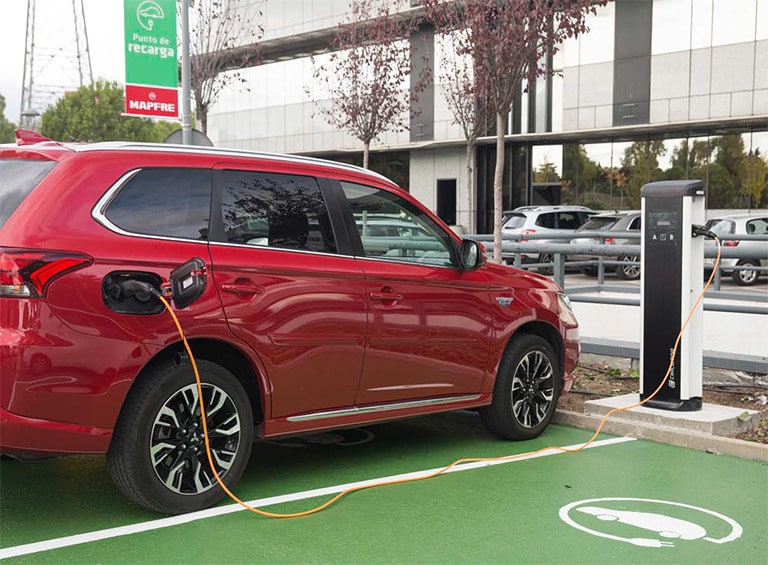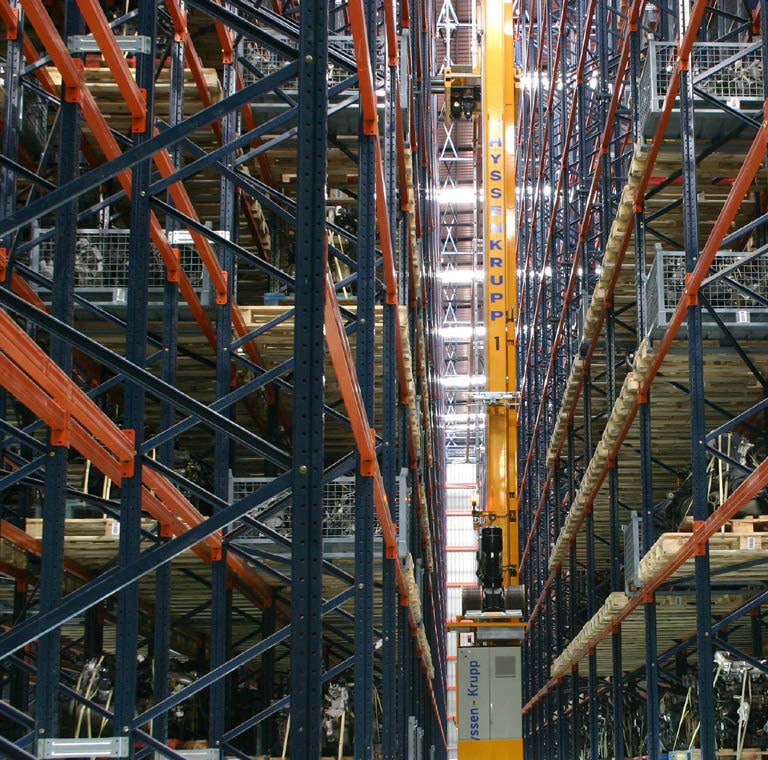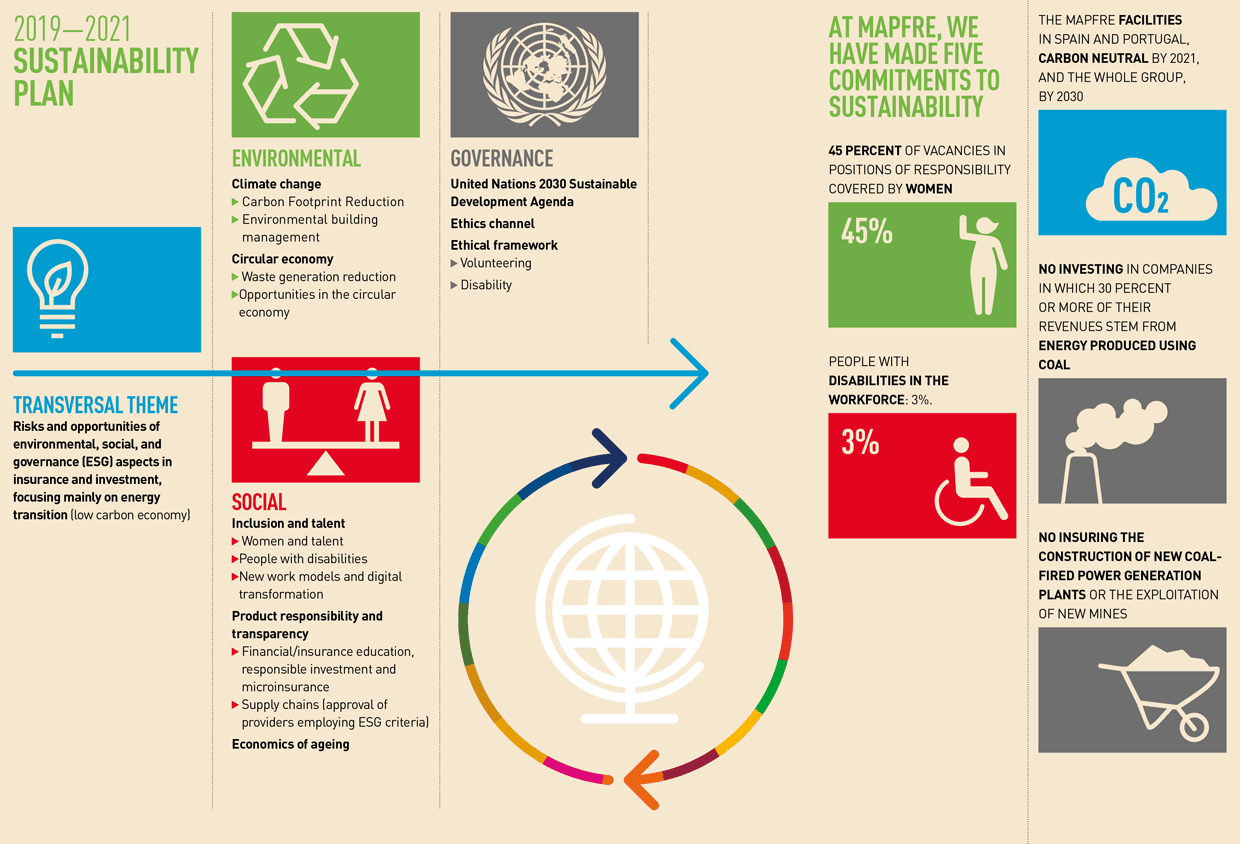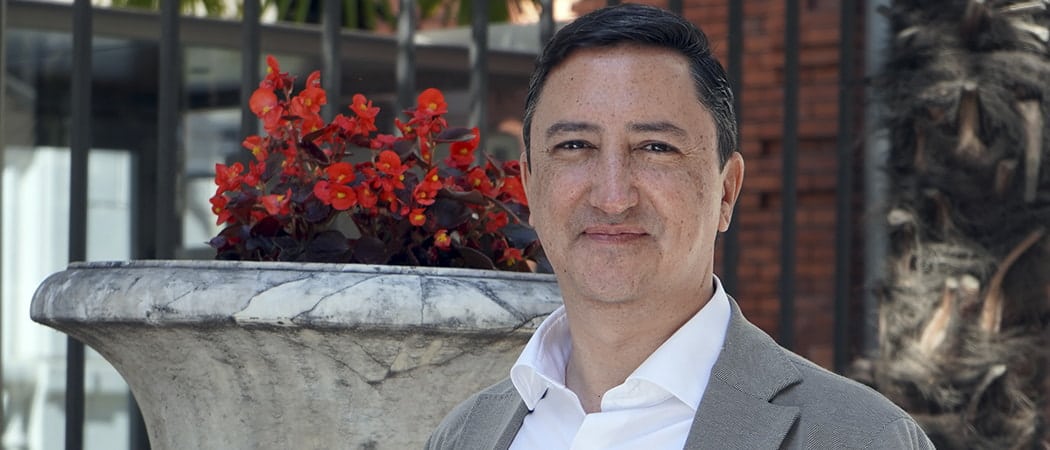TEXT NURIA DEL OLMO | PHOTOS MAPFRE, ISTOCK
Sustainable companies are more competitive, generate more opportunities, face new challenges with greater guarantees and enjoy a better reputation. Moreover, employees of these companies are more productive when they perceive that they work in an organization that respects people, protects the planet, cares about society, and implements ethical codes.
For companies committed to society, such as MAPFRE, having a sustainability plan is key to being able to further their commitment to building a better, fairer, more equal, more ethical, more prosperous, cleaner and safer world.
In 2019, MAPFRE approved its 2019–2021 Sustainability Plan, a transversal road map for the whole Group which lays out over 30 specific objectives and lines of action to advance its commitments to environmental, social and governance issues. In other words, such important questions as the fight against climate change, the circular economy, inclusion, transparency, financial education, the economics of ageing, the 2030 Agenda, ethics, employment, corporate volunteering and socially responsible investment, among others. Its prime objective is to position the company as a benchmark in terms of transparency, sustainability and trust; ensure that its clients, employees and the general public identify MAPFRE as a company committed to sustainable development; and see to it that shareholders and investors share our vision of medium and long-term value creation.
We now highlight some of the most important lines of work and projects.
Sustainability entails
Fulfilling all the public commitments assumed.
Finding a balance in the medium and long-term between environmental, social, and economic/ governance (esg) concerns and defining how these affect us and the stakeholders with whom we interact.
Managing the impact on society and identifying opportunities for sustainable development to create shared value.
These objectives are attained by means of a sustainability policy and the 2019-2021 sustainability plan
Climate change and carbon footprint
MAPFRE aims to be a carbon neutral company worldwide by 2030. To this end, the company is implementing a number of key environmental actions with a view to adequately managing and reducing its CO2 emissions. In Spain and Portugal, specifically, carbon neutrality will be achieved by the year 2021; technically speaking, this translates into the cancellation of 61 percent of the MAPFRE Group’s greenhouse gas emissions worldwide.
To achieve this, the company has implemented ecoefficiency measures in its buildings to save energy, water and paper; it holds neutral events, such as the last two Annual General Meetings; it acquires energy from 100 percent renewable sources and has launched a photovoltaic solar energy project at its headquarters in Majadahonda, Madrid, to reduce its electricity consumption. It is also promoting sustainable mobility through a range of actions: for employees, these include offering them various alternatives to private transport, facilities such as free electric car charging stations, buses as a collective public transit solution, and discounts for the purchase of hybrid and electric vehicles; and others for clients, offering them zero-emission replacement vehicles and increasingly using 100 percent electric mobile workshops and hybrid tow trucks for roadside assistance cases.
Climate change and the energy transition toward a decarbonized economy are also on MAPFRE’s agenda; it is in this context that the company is striving to reinforce its environmental, social and governance risk analysis models in a comprehensive fashion, from both the business and investor standpoint. This explains MAPFRE’s public commitment to cease investing in companies where over 30 percent of their revenues stem from energy produced using coal; nor will it insure the construction of new coal-fired power generation plants, or the exploitation of new mines. Also noteworthy is a UN pilot project – in which MAPFRE has been participating since 2018 – designed to assess the impact of climate change and incorporate the recommendations of the TFCD (Task Force on Climate-related Financial Disclosures) in the insurance industry.

At the Group’s headquarters in Madrid, there are electric vehicle charging points available to employees

Circular economy: minimizing waste and recycling parts
We are talking about a model that enables materials and waste to be optimized, shunning the current ‘use and throw away’ culture; instead it advocates reuse, repair, reduction and recycling, all with the overriding aim of giving materials a second life. In its commitment to the circular economy, MAPFRE recently signed up to the Circular Economy Compact, an initiative that sets forth nine commitments designed to: promote energy saving within the company and reduce its environmental impact; measure savings and efficiency in the company; promote products and services with ecological criteria that help reduce the carbon footprint; and engage society at large, fostering responsible consumption and a top-quality recycling model, among other initiatives.
In order to set the benchmark in this production and consumption model, the company has undertaken to minimize the generation of waste (paper, plastic, cardboard and electronic equipment, among others) throughout the Group and, by next year, achieve the Zero Waste Certification for its Majadahonda complex (Madrid). Also significant is the MAPFRE without Plastic project, in which 80 percent of its employees in Spain and Portugal participated in 2019 and which avoided the consumption of one and a half million plastic bottles and two million single-use cups.
Another fine circular economy example is CESVIMAP (MAPFRE’s Research, Experimentation and Road Safety Training Center), which designs sustainable vehicle repair methods, contributes to the improvement of automobile design so as to make them safer and easier to repair, and provides a second life to thousands of parts salvaged from vehicles declared a total loss. In this latter case, through Cesvi Recambios, to date the company has prevented the emission of over 47,500 metric tons of CO2 and has avoided the generation of 825 metric tons of glass and 1,200 of plastic at MAPFRE repair workshops in Spain.
Gender equality and talent
MAPFRE has a Gender Diversity Strategy designed to foster and consolidate a working environment in which all the female talent available within the organization can be exploited, make MAPFRE the benchmark employer for women, eliminate any gender gaps that may have been identified, and increase the number of women in executive positions. In the development of this strategy, MAPFRE has implemented a series of measures that contribute to the widespread promotion of female talent, including the creation of the Women’s Leadership Network. And it is committed to ensuring that, by 2021, 45 percent of all vacancies in positions of responsibility in MAPFRE worldwide will be filled by women.

Digital challenge
MAPFRE’s sustainability plan also focuses on the importance of the digital transformation and its impact on the labor market. In this regard, the company is guiding people in this new digital age with initiatives designed to further internal employability and enhance its employees’ digital skills and knowledge. Moreover, it is seeking strategic, digital profiles so as to capture the specific talent required by the organization, something that is certainly helping it find the best professionals and improve the employee experience throughout the company. The Corporate University is of tremendous significance in this whole process. It boasts a specific course to enable the whole workforce to bring their digital knowledge and skills up to date, as well as a reverse mentoring plan that puts the focus on the transfer of knowledge, experience and culture between employees of different generations, and a new employer branding strategy to capture the talent the Group needs.
Disability and value contribution
MAPFRE has a functional diversity strategy that aims to consolidate a working environment conducive to the integration of people with disabilities into the organization and thus become the benchmark employer for this group. The goal is to eliminate any barriers that have been identified, increase the number of people with disabilities in the company, and improve the quality of life of these people and their families. To develop this strategy, MAPFRE has a Global Disability Program through which actions are undertaken in all countries to raise awareness of the related issues, with a view to generating a work culture that is sensitive to the needs of people with disabilities, achieving the labor integration of people with disabilities and improving their quality of life. By next year, the company has set itself the goal of reaching three percent of its workforce being people with disabilities.

Financial and insurance inclusion
Financial education has taken on a leading role as a fundamental element of stability and protection. MAPFRE has determined that its clients and employees should feel more secure about their insurance, savings and investment decisions. To this end, it has launched several initiatives, such as the MAPFRE Sustainable Finance Observatory, a forum of academic institutions with which the Group aims to promote the development of financial instruments, insurance and pensions that meet socially responsible investment criteria, by means of various different lines of research and dissemination. The company also aims to change the concept of microinsurance from a product reserved for people with limited means to a rather more inclusive concept, as a way of driving economic development and social cohesion. To this end, it created a specific working group for these products and produced the report entitled Financial Inclusion in Insurance to provide an up-to-date view of the markets, products and target population for this kind of insurance, which covers basic risks.
In its commitment to boost financial inclusion, for two years now MAPFRE has been launching a comprehensive range of products that integrate ESG (Environmental, Social and Governance) criteria. Most noteworthy among these are investment funds such as Capital Responsable, which invests in shares and fixedincome securities of European companies selected on the basis of their proven ESG qualities.
Providers as brand ambassadors
MAPFRE wishes to rely on providers who do not put at risk the international commitments it has assumed in the fields of Human Rights and Sustainability. To this end, it is deploying a model based on ESG criteria for approving providers, which it wishes to consolidate for its providers in the Homeowners and Automobile lines, and in countries such as Colombia, Brazil, Mexico, Italy and the USA. The company also seeks to raise awareness of Human Rights issues among 75 percent of providers who meet its ESG criteria, as well as promote the United Nations 2030 Agenda for Sustainable Development among at least 50 percent of those already approved.
Economics of ageing
MAPFRE wanted to launch its own project to contribute to the ongoing analysis and debate on one of the most significant social transformations of the 21st century: the ageing population. As part of its Ageingnomics (Economics of Ageing) project, it presented La Revolución de las Canas [The Gray Hair Revolution], an informative document on the economics of ageing; it created a platform for debate in areas such as health and innovation, and launched the Ageingnomics Research Center with the aim of promoting research and knowledge of the gray-haired generation, the population segment aged 60 to 75. Within this context, the company is also working on an initiative to manage the ageing of its workforce, with projects such as Ageing; the idea is to introduce measures targeting the company’s more senior employees in such areas as professional development and training, health, financial well-being and working conditions, which will enable it to continue harnessing the talent of this group throughout their working lives. Another important line of work aims to foster the culture of savings and pensions, and, in this regard, the plan has set itself the objective of developing competitive products that encourage saving among young people and microentrepreneurs, with initiatives such as the El Pasillo del Ahorro Digital [Digital Savings Corridor] we are currently working on.


2030 Agenda
MAPFRE is an insurance company that cares for and protects people, and helps develop the business fabric of the countries in which it operates. That is why the company identifies fully with what the 2030 Agenda and its 17 Sustainable Development Goals (SDGs) represent; these refer to significant challenges related to equality, diversity, justice, health, education, growth and the planet, and call on the general public to engage fully and take action on these questions. One of the major challenges of the 2030 Agenda is to engage all the development actors – whether from the public, private or third sector, or the general public – and this requires promoting the Agenda and its Sustainable Development Goals. The company is therefore collaborating to disseminate knowledge of the Sustainable Development Goals (SDGs) and increase the profile of those SDGs which are top priorities for MAPFRE, the most noteworthy being Good Health & Well-Being (SDG 3), Decent Work and Economic Growth (SDG 8), Industry, Innovation and Infrastructure (SDG 9), Sustainable Cities and Communities (SDG 11), Climate Action (SDG 13), and Partnerships for the Goals (SDG 17).
Ethical framework: basic values and principles
MAPFRE is aware that its activity is important, but also the way it conducts it. In order to avoid events that might eventually affect its image and reputation, the company possesses a Code of Ethics and Conduct, which reflects the basic principles that should guide the actions of those within the company and the stakeholders with whom it interacts during its activity, such as employees, providers and contractors. In this sense, the company’s Sustainability Plan includes, among other actions, the launch of the online course on the Code of Ethics and Conduct, which is available to all its employees.
Social footprint: employment and volunteering
MAPFRE is committed to the economic and social development of the countries in which it operates, which translates into concrete projects, the impact of which must be gauged. The company is thus working to discover the contribution to society made by the volunteering program, in which more than 10,000 employees currently participate worldwide.





